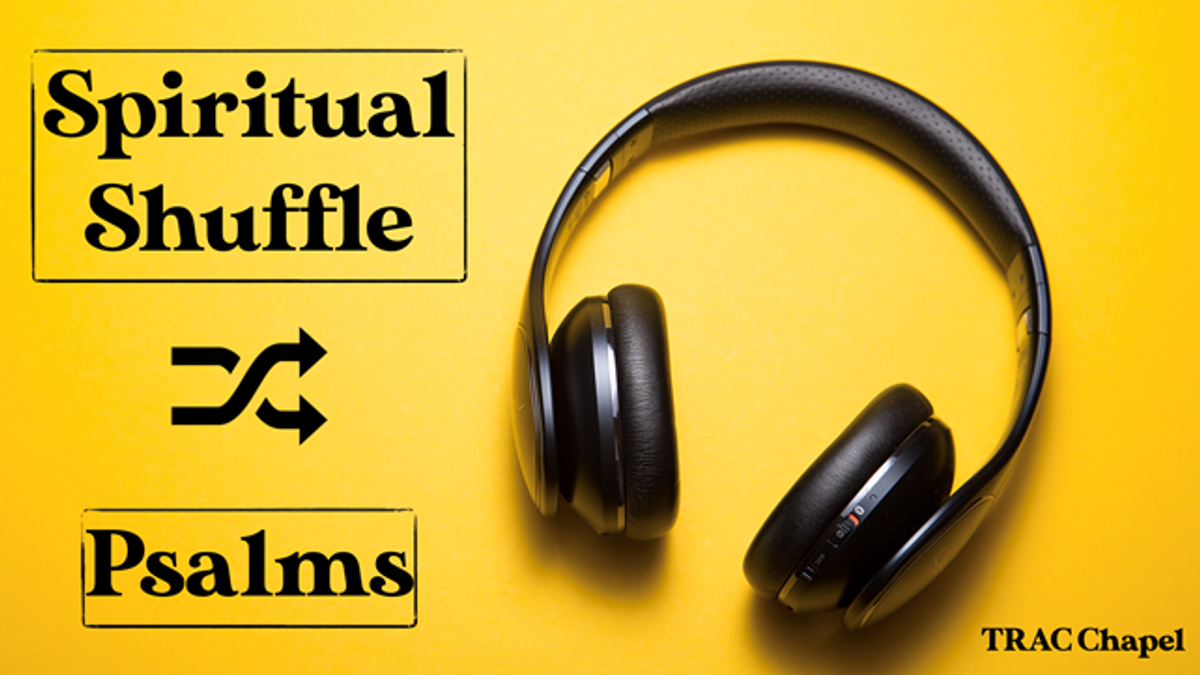COLLEGE CHAPLAIN

Hopefully, we will all soon be hitting the open road for a long awaited holiday. Whenever my family travels we always say a brief prayer for safety. We pray that I’ll be alert as I drive, that the weather will be clear and that other drivers won’t cause us harm. We pray as we drive because we know that God is able to protect us. However, since we’ve been driving as a family I’ve still felt exhausted as I drive long distances, we’ve still driven through storms, hail and blizzards, and we've still had car accidents. None were our fault and no one has been seriously hurt, but one was a second away from probably the death of all of us.
So when I read Psalm 121, you can imagine that I might be a little bit sceptical. In fact, I might even say that this psalm can’t be true; that’s it wishful thinking at best, rubbish at worst.
Psalm 121 is known as a psalm of ascent. It’s a song for the road that God’s people sung as they travelled up to the capital Jerusalem. Despite this, they seem to sing these ridiculous things about God providing safety during travelling. We know that even today with seatbelts, airbags and assisted braking travel is still dangerous. While travel was a lot slower in ancient times, it was still just as dangerous with bandits, wild animals and extreme weather with which to contend. So, either the Psalmist is lying to us, or there is more to this Psalm than just road safety. Most of the psalm speaks about God as a good protector. Apparently, he will ‘not let your foot slip’ (v3), and he will protect you from the sun and the moon (v6).
If I had a dollar for every time I walked to the fridge in the dark and my foot slipped on a Hot Wheels car I would never need to walk to the fridge again because I would be able to afford a full time butler! So how can the Psalmist say in v3 that God will not allow my foot to slip?
For years I’ve lathered myself in SPF moisturiser every day since I had a nasty spot that was one stage off becoming a melanoma cut out of my back. Surely, I have the sun to blame for that.
So how can the Psalmist say in v6 that God will not let the sun strike me? How can the claim that God won’t let my foot slip or the sun harm me when these things happen all the time? Thankfully, we can pretty comfortably say that those examples are poetic. The psalms are poems after all. This psalm uses poetic devices to help us imagine God as a protector.
We must remember that while the Psalms teach us truths about God they do it through metaphors, personification, assonance etc. So Psalm 121 does not contain specific promises that we can call God out on. The next time I slip on a Hot Wheels car in the kitchen I can’t yell out, ‘But what about Psalm 121, God? Got you there didn’t I?’
Nevertheless, the last two verses are a little bit different:
‘The LORD will protect you from all harm;
He will protect your life.
The LORD will protect your coming and going
both now and forever.’ (vv7-8)
There’s not so much wriggle room here is there? You can’t really get around these words as being merely poetic. All harm, your coming and going, your life now and forever—the Lord will protect these? How is this true? We have all experienced harm, maybe in a fight, maybe from someone you trusted. The last two years have taught us all too well that life is fragile, it’s impossible to protect forever.
But before we write this Psalm off as rubbish, we should recall its context, the moment in the life of God’s people for which it was first written. Psalm 121 is a song of ascent, a song God’s people would sing together as they travelled up to Jerusalem. They were ascending to Jerusalem to worship God. This journey could be long and tough, much like worshipping God. Worshipping God is not just singing and praying in Chapel; it is an all of life thing.
When I pray with my family before we hit the open road I also pray that I’ll obey the speed limits because when I’m obedient to the authorities that God has given me then I’m actually worshipping him. Every moment God gives us is an opportunity to worship him.
Even the classroom is a worship space. When students are patient and kind with their words and actions and encourage those who everyone else ignores then they are showing love and are worshipping God with their lives.
But these kinds of things take sacrifice and can be hard. I would love to drive at 150km/h, I would get to my destination much quicker! It would also be much easier to just tell everyone what you were really thinking or just ignore anyone with who you slightly disagree. But then we wouldn’t be faithfully worshipping God in the same way that he is faithful to us in Jesus. Plus we would crash our cars and our relationships!
Worshipping God is a long journey and it’s tough, which is what this Psalm is all about. This is not a list of things to expect when travelling on a highway, rather, this is one big metaphor about travelling through a life devoted to the worship of God.
Think about what it means for God to protect your life in v7. It can’t mean that he’ll keep you from dying can it? People die all the time; people who love and trust Jesus die all the time too. So there must be more to the word ‘life’ here. The Hebrew word is nefesh, which means more than just the term of your natural life, it means your whole sense of being or your soul. That’s what Christians give to God in worship, our whole self, our nefesh, and that’s what God promises to protect.
You won’t be harmed from worshipping God. Physical, emotional harm may come. But nothing can strip God’s followers from his protection of their souls. ‘Indeed, the Protector of Israel does not slumber or sleep.’ Jesus picks up on this eternal protection even in the face of harm, when speaking to his disciples about what life will look like for those who devote themselves to serving him:
‘You will even be betrayed by parents, brothers, relatives, and friends. They will kill some of you. You will be hated by everyone because of My name, but not a hair of your head will be lost. By your endurance gain your lives.’ (Luke 21:16-19)
Their families will turn on them, some will be killed, all will be hated. But despite this, God’s protection is so strong that he can even account for every strand of hair on their head. Again, like the foot stumbling in Psalm 121, this is a bit of poetry to make a point (although it does get easier to account for the hairs on your head as the years progress).
The point is clear in Jesus’ last sentence, ‘By your endurance gain your lives’ (v19). Those who stick at worshipping God will gain their life, their nefesh, their soul as in Psalm 121.
Worshipping God will be tough, but faithfully enduring will see the faithful God deliver those who have entrusted their lives to Jesus into an eternal life where they will be protected forever. So even though we have only seen glimpses into how hard it can be to worship God with our whole self, our nefesh—by devoting it to Jesus, it’s clear that God’s faithfulness to Christians is 24/7!
As Psalm 121 reminds us God does not sleep and His faithfulness is eternal. The LORD will protect your coming and going both now and forever. That’s now as Christians worship him with their possessions, their bodies and their time. And it’s forever when their bodies will enjoy the riches of heaven for eternity.
Perhaps this Psalm wasn’t so rubbish after all? Maybe it’s an encouragement to rethink all those, ‘Yeah but what about’ type questions that I asked of God at the beginning? Maybe it’s a glimpse into the security of a relationship with God? Maybe it’s a road that you would like to start travelling down? A road that leads to eternity.
This is an edited extract from our Term 4 Chapel series in the Psalms.
You can listen via the TRAC Chapel podcast on Apple, Spotify or any other platform.
Gareth Tyndall | College Chaplain


